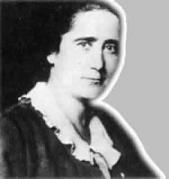Spanish abortion laws debated in parliament
Izquierda Unida, the Spanish communist party, is due to present a motion in parliament today calling for reform in Spanish abortion laws. This move comes at a time when the debate over Spanish abortion laws has been reopened due to the controversy over the investigations into illegal abortions being carried out in a number of clinics in Madrid in Barcelona. Gaspar Llamazares, leader of Izquierda Unida, has accused the government of not fulfilling its electoral promises over this issue.
The present law Spain only legally allow abortion in 3 cases – when the woman has been raped and has reported it to the police then an abortion is allowed during the first 12 weeks of the pregnancy, if serious physical abnormalities have been detected in the foetus then an abortion can be carried out up to 22 weeks into the pregnancy or the pregnant woman faces serious risks to her health or possible negative psychological problems due to the pregnancy (no time limit is in place under these circumstances).
Yesterday José Luis Rodríguez Zapatero, the Spanish president admitted that this issue would have to be addressed in time, but he did not specify whether or not decriminalisation of abortion would be included in their election manifesto. It is understood that the women members of Zapatero's Gabinet are pushing for reform.
Maribel Montaño the PSOE secretary in charge of Equality said in an radio interview broadcast on Cadena Ser that the present laws governing abortion in Spain were made 25 years ago and that now was the time to modify the law and adapt it to the new social reality of today’s Spain. She confirmed that any supposed changes to the law would be included in PSOE’s next electoral programme. She said the double objective of this would be to defend the rights of women to control their maternity and give more legal backing and clarification on this issue.
The present law Spain only legally allow abortion in 3 cases – when the woman has been raped and has reported it to the police then an abortion is allowed during the first 12 weeks of the pregnancy, if serious physical abnormalities have been detected in the foetus then an abortion can be carried out up to 22 weeks into the pregnancy or the pregnant woman faces serious risks to her health or possible negative psychological problems due to the pregnancy (no time limit is in place under these circumstances).
Yesterday José Luis Rodríguez Zapatero, the Spanish president admitted that this issue would have to be addressed in time, but he did not specify whether or not decriminalisation of abortion would be included in their election manifesto. It is understood that the women members of Zapatero's Gabinet are pushing for reform.
Maribel Montaño the PSOE secretary in charge of Equality said in an radio interview broadcast on Cadena Ser that the present laws governing abortion in Spain were made 25 years ago and that now was the time to modify the law and adapt it to the new social reality of today’s Spain. She confirmed that any supposed changes to the law would be included in PSOE’s next electoral programme. She said the double objective of this would be to defend the rights of women to control their maternity and give more legal backing and clarification on this issue.
Labels: society, Spanish politics, women in Spain




